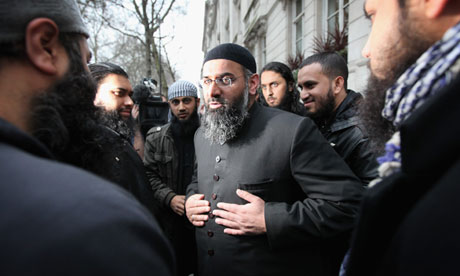
Many things were different in 2004. Tony Blair was PM, Gaddafi was in our good books, because he had promised to dismantle his WMDs. And it was possible to write a book about immigration that was clear-headed about the past and optimistic for the future. When Robert Winder did so, very many patted him on the back.
But that was then. Before 7/7, before the crash, before rabble-rousing Anjem Choudary became a template on the front page of the Sun. Before the political class started tearing its hair out about benefit tourism; before British jobs for British workers; before the Border Force fiascos; before the turbo-charging of racially and culturally loaded debates over honour killings, female genital mutilation and sexual grooming. It's still possible to paint a textured picture. But the landscape is different.
The book, Bloody Foreigners, has been revised and updated, and what is noticeably different is Choppy Waters, a chapter addressing challenges that have become obvious since first publication. "There was the enlargement of the EU and the impact on the economy, the cultural fallout from 9/11 and 7/7," says Winder. "The noisy one is the Islamic one. I think that is what has shocked people into a pretty old-fashioned, nationalistic mindset. I thought these things pretty seismic. But I still left the subject feeling optimistic. There are fragments of isolated violence, but in general, racial hostility is the dog that didn't bark."
He has had almost 10 years to think about it and the verdict is that there is no verdict. There can't be. The story keeps evolving. One thing we can say at this stage is that, even in these scratchy times, we are still handling upheaval better than most. Will the most recent wave of migration be a success? Too early to be definitive. "In 20 years we will look at some of the people who have arrived and say what great successes they have become," he tells me.
And perhaps, when the waters seem less choppy, we'll see it all in light and shade, discerning a bit more of the humanity and humour created by the migrant journey. In this vein, the book retells a joke, about an Englishman at the opticians. "'Can you read the letters in the bottom row: c, z, w, s, m, c, z, k, y,' the optician asks him. 'I can do better than that,' the man says. 'I know the guy – he just fixed my bathroom.'"

